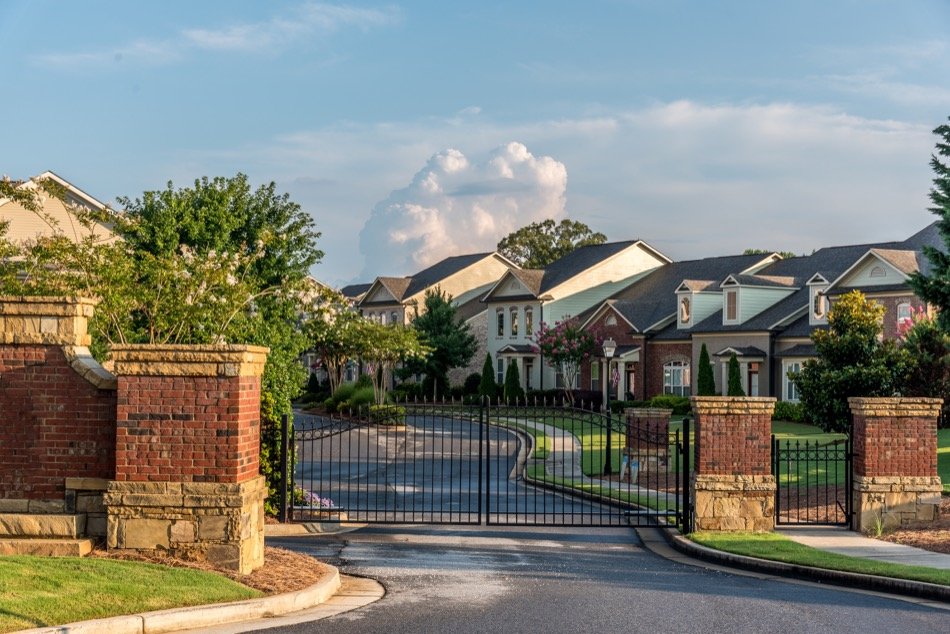A Guide to Buying a Home in an Age Restricted Community
Posted by Dave Kotler on Monday, July 19th, 2021 at 11:25am.
 There are laws in Canada that prevent HOAs from placing age restrictions on housing, but the one exception to these regulations is made for senior living. Considering the rising population of retirees, age-restricted communities are popping up at record rates in practically every corner of the country. Before a Joe Rich homebuyer chooses this option, it helps to understand the reality of these communities. Learn more about both the perks and potential disadvantages before getting a home down payment together.
There are laws in Canada that prevent HOAs from placing age restrictions on housing, but the one exception to these regulations is made for senior living. Considering the rising population of retirees, age-restricted communities are popping up at record rates in practically every corner of the country. Before a Joe Rich homebuyer chooses this option, it helps to understand the reality of these communities. Learn more about both the perks and potential disadvantages before getting a home down payment together.
For informational purposes only. Always consult with a licensed real estate professional before proceeding with any real estate transaction.
Benefits of Living in an Age-Restricted Community
First, because virtually everyone in a senior living community has arrived from somewhere else, there is an immediate bond that leads to conversation. Learning about new neighbours becomes a catalyst for discovering mutual interests and reestablishing old alliances, including through professional and service organizations.
Secondly, in most age-restricted communities, there is the recognition that everyone there has made the choice willingly and accepts the reality that there will be some rules to follow and some differences of opinion. But most residents are welcoming and congenial, helpful and understanding.
There is a laid-back ambience in most age-restricted communities — weekdays and weekends blend together — and many residents find that they are energized, both physically and emotionally, by the diverse opportunities that exist to remain active or to pursue new interests, from cooking clubs to car repair, from pickleball to poker, from crochet or croquet to choir practice.
Be Aware of Age-Restriction Laws in the Community
Some communities are obviously designed with seniors in mind. Their marketing materials may show older people enjoying a round of golf, shopping at an on-site pharmacy, or chatting around a hand of cards. But just because the company is marketed toward seniors doesn't mean that their bylaws necessarily prevent people of other ages from staying on the property. Some people in retirement communities are actually employed, which can change the dynamic of the facility.
This means that if a buyer is considering moving in, they need to be prepared for the possibility of a neighbour's grandchild moving in next door for months at a time or of a young family moving into their grandparent's estate. Other retirement communities may limit visitor privileges (e.g., placing a maximum time on how long visitors can stay on the property).
Plan for the Future as You Age in the Community
When people move into an age-restricted community, it's not always easy to imagine how exactly things will change in the future. Considering a homeowner can potentially live four or five more decades in the community, it really helps to make prudent decisions about the future.
So while a buyer may not need assisted living care when purchasing the home, it doesn't mean they won't need it somewhere down the line. A community that has on-site medical facilities or a grocery store can eventually come in handy. Some communities will even offer services where couriers can easily get on and off the property to deliver everything from prescriptions to dry cleaning.
Common Amenities in 55+ Communities
Retirement communities come in all shapes and sizes, but here are just a few amenities that they may offer residents:
- Housekeeping/laundry
- Hairdresser/barbershop
- Private dining rooms
- Clubhouses
- Pool/jacuzzi/sauna
- Security service
- On-site medical care/medication management
- Massage therapists
- Library
- Computer room
- WiFi
- Activity room
- Gyms/fitness classes
The Social Scene in Senior Living Communities
One of the biggest reasons people move into a retirement community is for a sense of camaraderie. The sense of social stability isn't just important for seniors; it's vital for everyone if they hope to improve their quality of life. From casino nights to swim classes to destination outings, buyers should consider which activities they're most likely to participate in.
Experts warn against being overly optimistic when it comes to a person's likes and dislikes. While some people take up new hobbies during retirement, many may find that common retirement hobbies don't suit their preferences or lifestyles.
The Downsides of Age-Restricted Life
Age-restricted communities typically limit the kinds of people a person will meet on their block. This can potentially mean shutting out wonderful connections with people from different backgrounds and schools of thought. Some people would prefer the opportunity to socialize with a diverse group of neighbours where they can continue to learn and grow as people well after they retire.
Buyers who choose an age-restricted community typically have more research to do than a standard home sale. While the quality of schools might not come into play, there are so many kinds of communities (and different rules to each one) that it takes a lot of preparation to get right. Buyers should give equal weight to their current wants as well as their future needs.
For informational purposes only. Always consult with a licensed real estate professional before proceeding with any real estate transaction.
Dave Kotler

